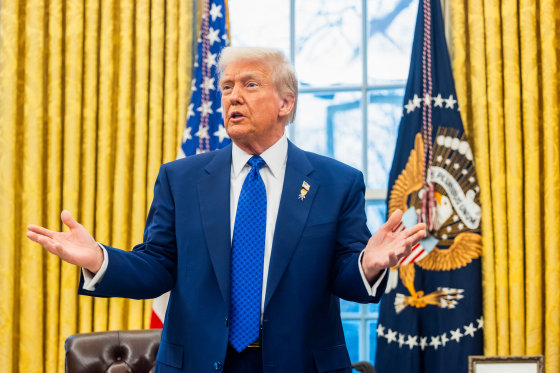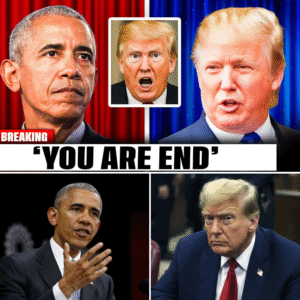In a moment that crackled with raw intensity, House Minority Leader Hakeem Jeffries (D-NY) issued a stark admonition to President Donald Trump and the Republican Party amid escalating threats against his life. “When it comes to these extremists out there, you better watch how you talk when you talk about me,” Jeffries declared during a press conference on Capitol Hill, his voice steady but laced with unmistakable resolve. The statement, captured on video and rapidly circulating across social media, underscores the perilous intersection of political rhetoric and real-world violence in America’s fractured landscape.

The catalyst for Jeffries’ rebuke was as alarming as it was personal: the arrest of Christopher Moynihan, a 34-year-old New Yorker and former January 6 Capitol rioter, on charges of making terrorist-like death threats against the congressman. According to court documents, Moynihan – who had been sentenced to nearly two years in prison for his role in the 2021 insurrection before receiving a pardon from Trump earlier this year – allegedly texted an associate last week: “Hakeem Jeffries makes a speech in a few days in NYC I cannot allow this terrorist to live.” Another message chillingly added, “Even if I am hated he must be eliminated.” New York State Police swiftly apprehended Moynihan, charging him with making terroristic threats, a felony that could carry severe penalties.
Jeffries, the highest-ranking Black lawmaker in Congress and a vocal critic of Trump’s agenda, framed the incident not as an isolated act but as a symptom of broader “extreme political violence” plaguing public servants. “We’re living in a moment of extreme political violence,” he said, his eyes scanning the room of reporters. “I think the reckless and irresponsible pardons of hundreds of violent felons on January 6th has consequences… There are consequences to that, beyond me. There are consequences to irresponsible actions, and not a single House Republican has walked away from them.” The Minority Leader’s words hung heavy, a direct challenge to the GOP’s unwavering support for Trump’s mass clemency of over 1,500 January 6 participants, many convicted of assaulting officers or seditious conspiracy.

The response from the right was swift and mocking, amplifying the partisan chasm. Conservative outlets like Twitchy branded Jeffries a “tough guy” in a piece titled “Ooh, We Got a Tough Guy Here,” deriding his warning as an overreach into free speech territory. “Warning people that they’d better check their free speech rights at the door sounds a lot like something a king or a tyrant would say,” the article quipped, echoing sentiments from Trump allies who view such statements as performative outrage. On X (formerly Twitter), memes proliferated overnight: one viral post from @MJTruthUltra tagged Jeffries directly, inviting users to “drop your best meme of Jeffries below,” while others, like @FAFOhq, sarcastically asked, “Anyone scared?” with a clip of the presser. Engagement soared, with thousands of likes and reposts framing the Democrat’s plea as weakness rather than warranted alarm.
Yet, beneath the online snark lies a sobering reality. Jeffries’ confrontation arrives against a backdrop of heightened dangers for elected officials. The FBI has reported a surge in threats against members of Congress since the 2024 election cycle, with Democrats bearing the brunt – over 8,000 credible threats investigated in 2024 alone, per agency data. Historical parallels abound: from the armed kidnapping plot against Michigan Governor Gretchen Whitmer in 2020 to the pipe bombs targeting Democratic offices on January 6, inflammatory language has repeatedly fueled action. Jeffries, who rose to prominence as a fierce impeachment manager against Trump in 2019-2020, has long been a lightning rod for MAGA ire. His office has fielded death threats weekly, staffers say, forcing enhanced security measures that strain resources.
Critics on the left, however, argue that Jeffries’ warning is not just defensive but defensive democracy. “This isn’t about silencing dissent; it’s about accountability,” said Rep. Jasmine Crockett (D-TX), a close ally, in a follow-up statement. “When a pardoned insurrectionist targets a leader like Hakeem for doing his job, we must call out the ecosystem that enables it – from rally chants to retweets.” Progressive groups like the Congressional Progressive Caucus echoed this, urging the Justice Department to probe whether Trump’s pardons violate federal guidelines on clemency for violent offenders.
As the dust settles, Jeffries’ ultimatum reverberates far beyond the Beltway. It spotlights the fraying norms of civil discourse, where barbs once confined to op-eds now manifest as indictments. For Trump, fresh off victories in key policy battles, the episode serves as an unwelcome reminder of his administration’s lingering shadows – pardons intended as olive branches to his base, now weapons in the arsenal of extremists. Republicans, meanwhile, decry it as hypersensitivity, insisting their criticisms remain protected speech.
In an era where polls show 62% of Americans fear political violence will define the next decade (Pew Research, 2025), Jeffries’ stand feels less like bravado and more like a bulwark. “I will not be intimidated,” he concluded, fists subtly clenched. Whether this deters the vitriol or ignites it further remains to be seen. But one thing is clear: in the theater of American politics, words are no longer just words – they’re warnings, worth heeding.





